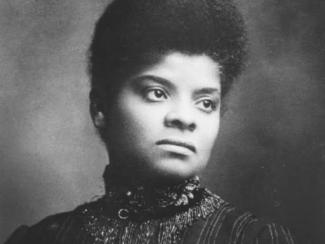
A major part of Ida B. Wells' legacy is “Southern Horrors,” her investigative journalism series covering 728 lynchings in the late 19th-century South.
Over a century later, some historians claim that these lynchings were so prevalent because of a combination of anti-Blackness and a lack of “law and order.” This implies a more supportive criminal legal system would protect Black people from whites. But would it?
Wells’ life was at risk not just because of her writing on white vigilantes in these lynch mobs, but because of policing, too. She described “prisoners taken out and lynched, while governors of states and officers of law stand by and see the work well done.”
So, when today’s police violence is called “modern-day lynchings,” yesterday’s lynchings were police violence, too.
Judges, sheriffs, and other lower-ranking cops were integral in this violence. Besides those donning KKK hoods and running in mobs, their legal power allowed them to ignore or participate in the violence. One figure states that 75% of historical lynchings had “direct or indirect assistance of law enforcement.”
Applying Wells’ work to today may mean imagining solutions beyond legal reforms if lynchings have only evolved through time.
Our historical figures have left us a blueprint for truth-telling, community programs, and dismantled oppressive systems. We can use those foundations to work towards alternatives to policing, not reform.